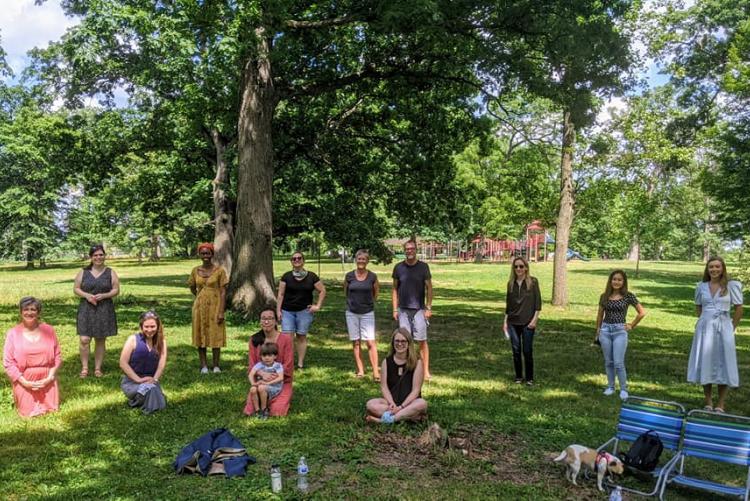Two PhD students affiliated with The Poverty and Inequality Research Lab finished their dissertations and completed their PhD degrees.
The Poverty and Inequality Research Lab would like to congratulate Allison Young and Christine Jang-Trettien, two PIRL PhD students, on completing their sociology dissertations and receiving their doctoral degrees!
Allison’s dissertation centers around the following question: Given students’ high expectations for bachelor’s degree attainment, why are low-income students less likely to enroll in postsecondary education than middle- and high-income students? She uses three sources of data to examine how students decide whether and where to go to college: a set of qualitative interviews with 150 African-American Baltimore youth ages 15-24 from disadvantaged neighborhoods, a longitudinal set of qualitative interviews with 108 African-American families (parents and children) who participated in the Baltimore Housing Mobility Program (BHMP) and were interviewed several times between 2012 and 2019, and data from the High School Longitudinal Study of 2009 (HSLS:2009), a nationally-representative, longitudinal dataset from the National Center for Education Statistics. She found evidence that low-income African-American students place a high value on postsecondary education and take it very seriously, to the point of delaying college entry or enrolling in sub-baccalaureate programs initially as a preparatory step. She also found that the high school a student attends can play an important role in their college decision-making process. The low-income, African-American youth in the BHMP study who attended Baltimore City high schools mostly received little college guidance and typically did not enroll in any college. Those who attended suburban high schools received much more guidance, but often felt it was insufficiently targeted to the needs of low-income students and typically ended up enrolling in community colleges or for-profit trade schools rather than four-year colleges. Finally, she found some support for these qualitative findings using HSLS:2009 data. A student’s socioeconomic status (SES) and race is correlated with the importance they place on a variety of college characteristics, including academic reputation, cost, job placement record, graduate school placement record, distance from home, offers a particular program, and school spirit. In general, low-SES students tended to value college characteristics that were associated with enrollment in less- or non-selective colleges, whereas high-SES students valued college characteristics that predicted enrollment in more selective colleges.
Allison will be remaining at PIRL and starting a postdoctoral position at The Johns Hopkins University this August. Click here for her CV.
Christine’s dissertation examines what happens to urban housing markets in the context of decline, focusing on the decisions of homeowners and real estate investors, as well as the larger structural context in which they make decisions. The findings show that homebuyers in disadvantaged neighborhoods often purchased through the informal housing market, financing purchases without institutional lending. It also shows that there is a stratified landscape of real estate investors in poor neighborhoods: investors target other investors, and to a lesser extent, homebuyers and financial institutions, to extract large amounts of profit. Together, her dissertation shows that there is little oversight of housing markets in disadvantaged neighborhoods. While homeowners, market actors (including real estate agents, appraisers, and inspectors) and even city governments provide oversight of transactions in wealthier neighborhoods, the same is not true for disadvantaged neighborhoods, where transactions often happen outside of the formal market and where investor-owned properties vastly outnumber owner-occupied properties. The chapters also show that poor neighborhoods are not just suffering from a lack of investment – market actors and institutions also make choices that actively produce disinvestment. Through an examination of these markets, this dissertation contributes to our understanding of urban poverty, neighborhood effects, and housing policies, showing the “downstream” repercussions of entrenched problems such as redlining, discriminatory financing, segregation and disinvestment that scholars have studied at length.
Christine will be starting a postdoctoral research associate position at Princeton University in the fall. Click here for her CV.
- Log in to post comments
